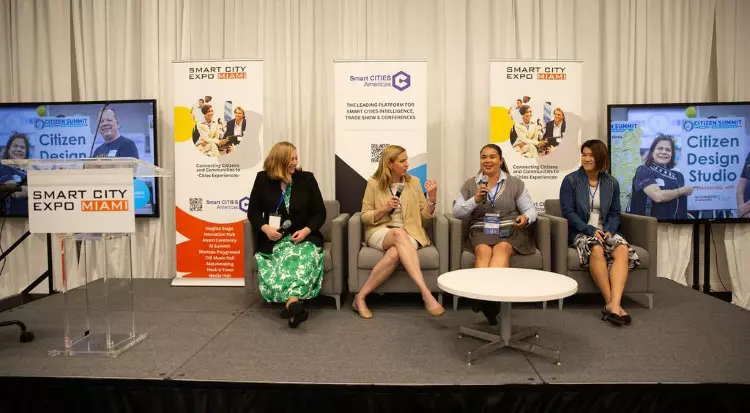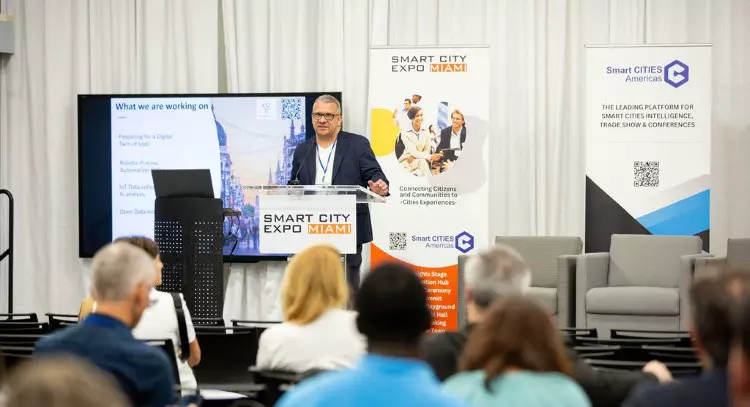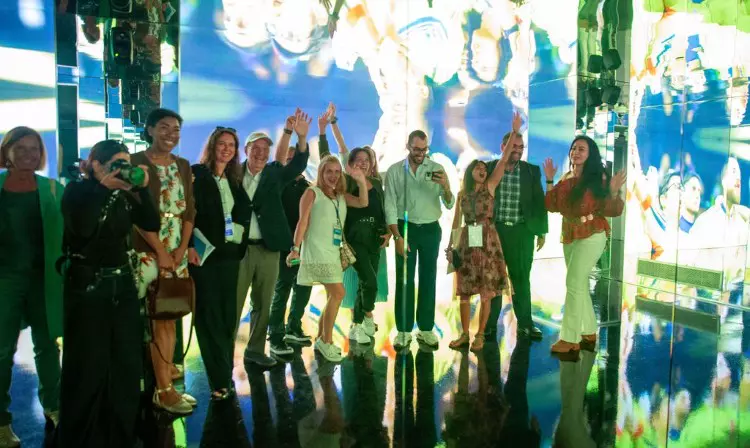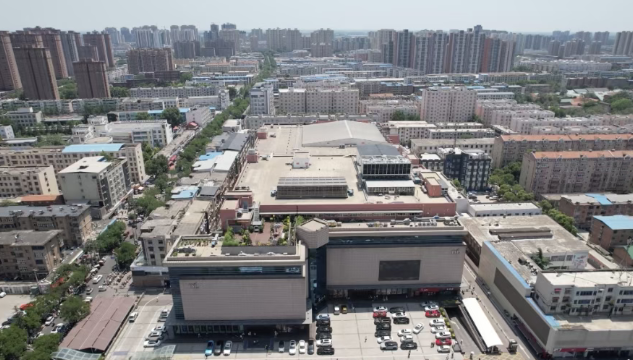Last week, Smart City Expo Miami marked its sixth anniversary under the theme “Reimagine Urban Spaces.” Far beyond the tech demos and data dashboards, the event revealed a deeper current shaping the global conversation on urban innovation. City leaders, technologists, and civic thinkers from over twenty countries converged at Miami Dade College’s Wolfson Campus to reflect on a single question: How can technology serve humanity — and not the other way around?
Optimism filled the conference spaces, echoing through every discussion about how artificial intelligence is now central to reimagining urban life. Far from just digital optimization, the consensus throughout the Expo was clear: AI’s greatest promise lies in its ability to serve humanity, weaving transparency, adaptability, and inclusivity into the very foundation of tomorrow’s cities. Attendees challenged each other to build “smart” environments not only by deploying algorithms, but by deeply understanding human needs, elevating community voices, and advancing social equity within the framework of planetary health. Members repeatedly emphasized that smart cities must not be built for people, but with people.

Ethics and the Intelligence of Responsibility — Reflections from Smart City Expo Miami 2025
Jonathan Reichental’s keynote expanded on this vision, situating the audience at the cusp of what he termed “the cognitive Industrial Revolution.” Pragmatically positive, he challenged city leaders to reimagine smart leadership itself—to prepare, not merely for technological intensification, but for the ethical, regulatory, and cultural pressures that accompany it. “Good governance,” he argued, “is anticipatory, participatory, and transparent.”
Cities for All: Inclusion as Infrastructure
Inclusivity was a common thread that ran across all the sessions at Smart City Expo Miami 2025. From Barcelona’s Honorata Grzesikowska to urban renewal expert May East, the news was the same: intentional, participatory design leads to healthier, greener, and more equitable cities. Dr. Melissa Petersen’s Healthspan Model brought empirical evidence to bear, showing how small interventions such as planting trees can add years to people’s lives, reduce asthma and cardiovascular disease, and make communities safer and more cohesive.
Speakers stressed that inclusiveness must be handled not as an extra amenity, but as core infrastructure—a master plan of necessity for policies that create community resilience and emotional health.

Transparent Cities and the Power of Engagement
Citizen engagement was at the forefront in meetings with Coral Gables CIO Raimundo Rodulfo, whose focus on open data-sharing and co-designed decision-making placed technology in the hands of citizens as a democratic, rather than technocratic, tool. Building on the convergence past dashboards or IoT sensors to how trust and feedback loops can create actual civic accountability. Luis Miguel Gallardo’s World Happiness Framework provided quantitative depth to this narrative. By reframing prosperity in qualitative terms—resilience, purpose, belonging—he challenged cities to measure success in terms more than GDP or broadband, towards “the architecture of happiness.”
Designing for Climate, Care, and Continuity
The call to climate action and energy transition echoed throughout the conference. Sweta Gupta’s talk on moving away from coal-dependent systems to renewable energy solutions highlighted both economic and moral imperatives. Her data indicated that U.S. consumption of coal has reduced by more than 60% since 2005, explaining the ways in which grid modernization can not just spur sustainability but also energy justice for marginalized communities. Gupta’s takeaway: resilience must be double-bottom-line—environmental and human—and based on learning from frontline communities.
Jake Taylor delivered a talk on The Rise of the Experience Economy: How Post-COVID Digital Expectations are Shaping Urban Spaces. The program explored how sensory, emotional, and cultural dimensions inform the design of urban environments alongside intelligent infrastructure. Central to the discussion was the balance between automation and human experience—urban design conceived as both science and story.
From Collaboration to Continuity
A sense of collaboration infused each second, from presentations to richly learning masterclasses on day three. Delegates left with a shared assurance that cities must operate as living systems—responsive, inclusive, and responsible in real time. The conversations leaned toward a gathering consensus across industry, academia, and government: technology cannot substitute for leadership, empathy, or imagination, but can be harnessed exponentially to grow them when ethically guided.

The Decade Ahead
As the conference drew to a close, Smart City Expo Miami 2025 confirmed that city intelligence is not merely computational, but also moral, cultural, and collective. The next ten years of smart cities will be defined not by how fast we digitize, but by how deeply we humanize our decisions despite the acceleration of AI, data focus and innovation.
From AI and data strategy to climate resilience and citizen design, the Miami lessons sound across the globe: the true test of a “smart” city is not its systems, but its soul.
Read more about conferences and exhibitions here


